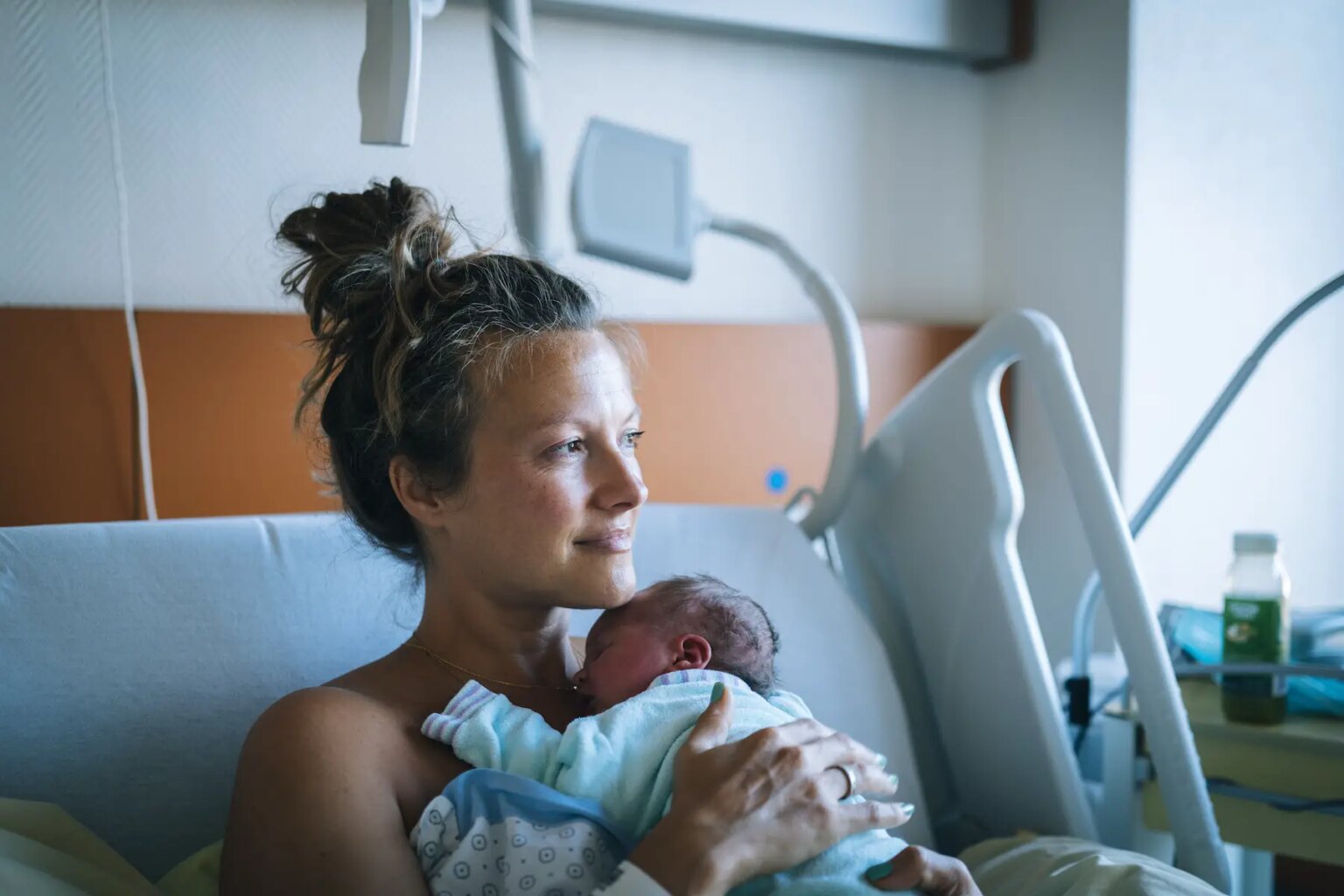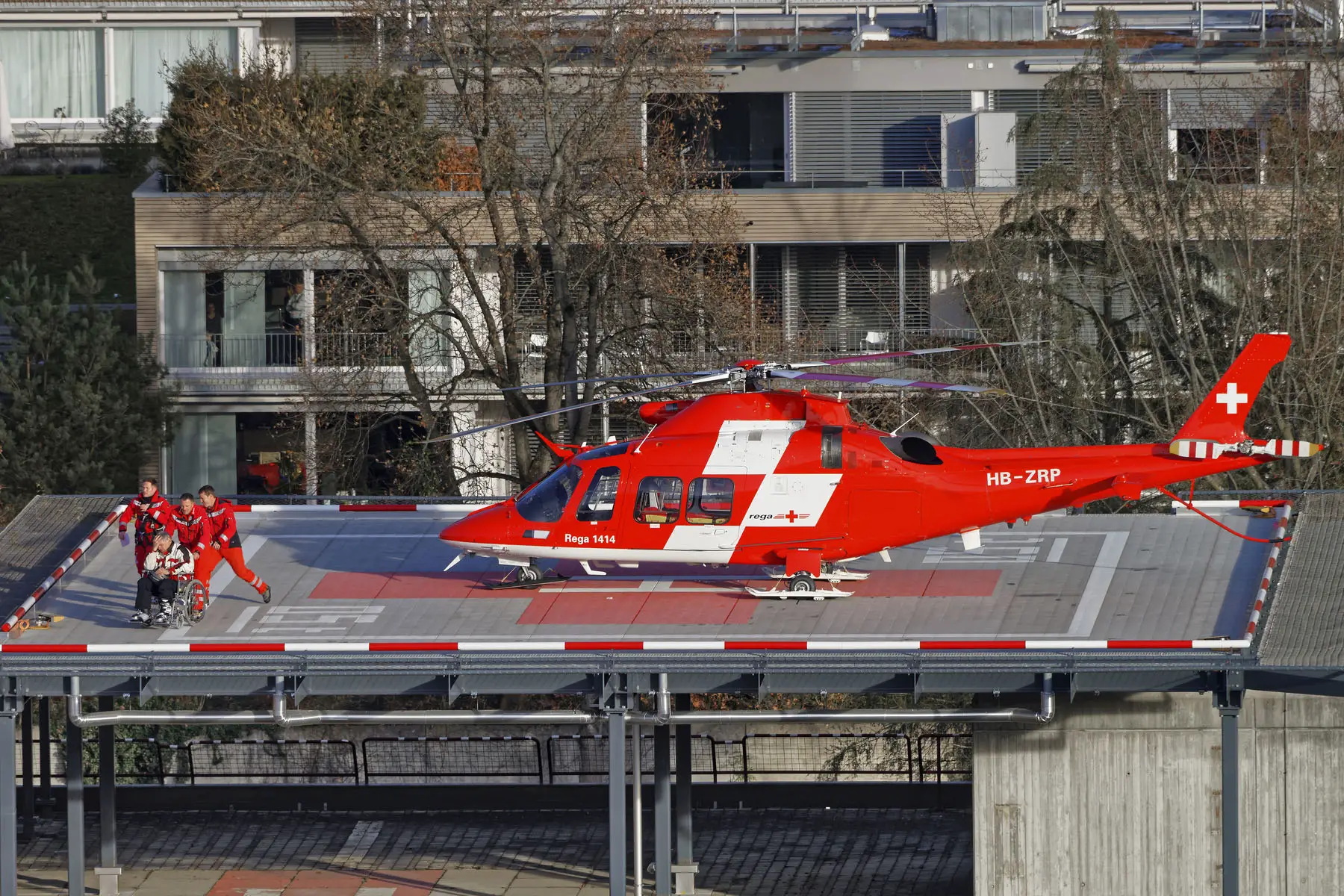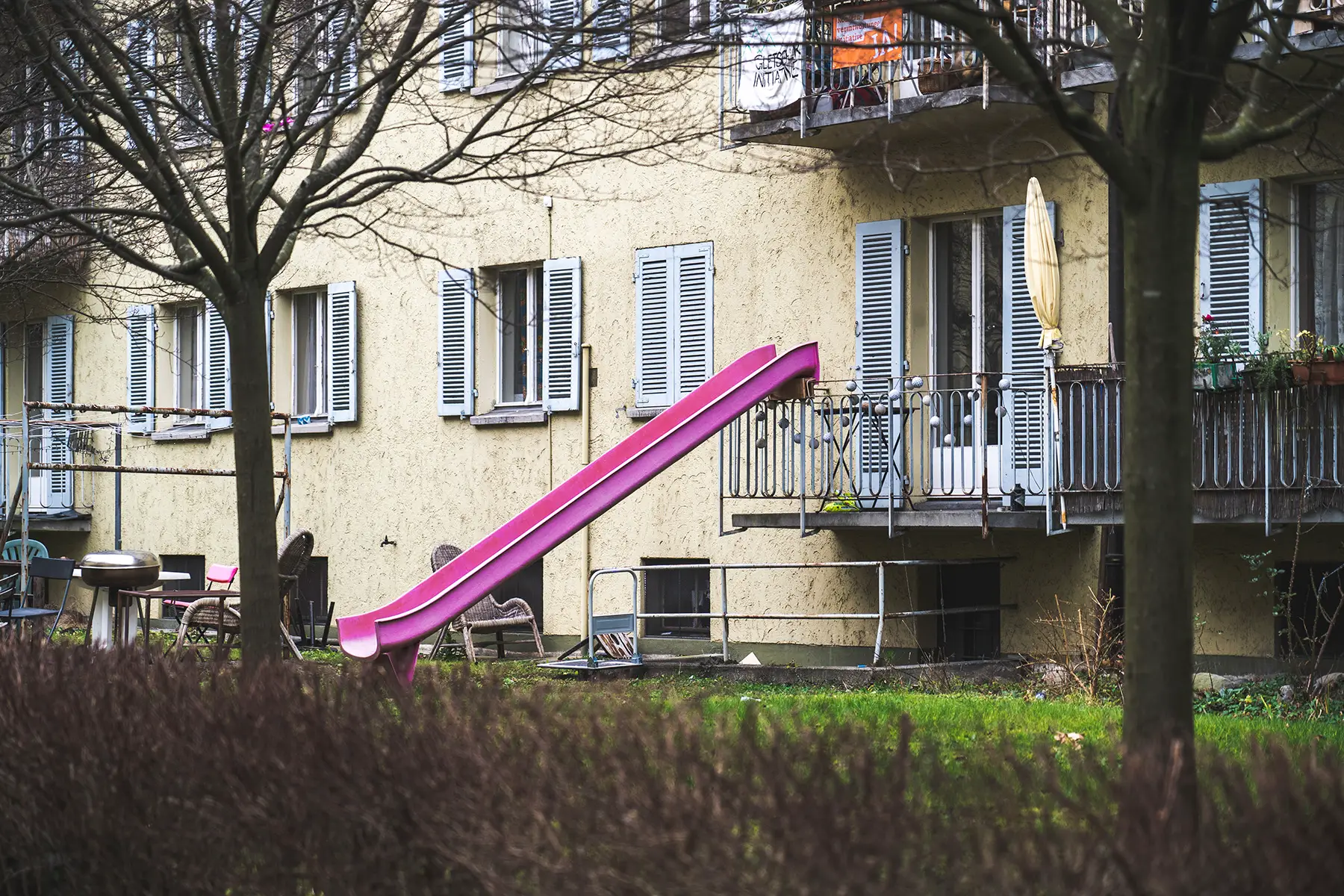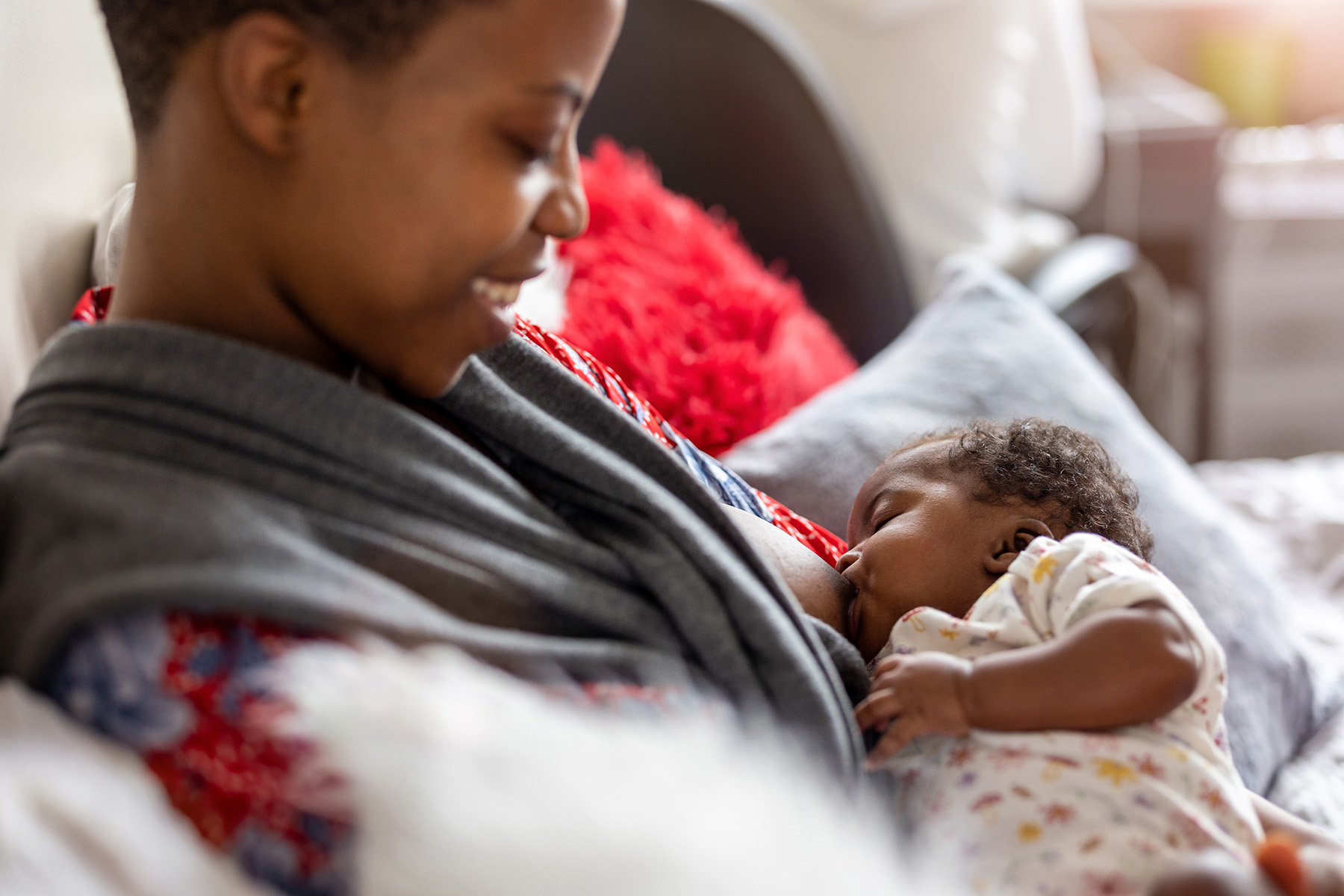Like moving to a new country, having a baby is an exciting life milestone that takes a lot of preparation. Fortunately, if you’re studying or working in Switzerland, you have access to one of Europe’s best healthcare systems. The Alpine country also provides a child benefit allowance and generous parental leave, making it a great place to start a family.
Read on for more about the following:
- Having a baby in Switzerland
- Swiss maternity health insurance
- Accessing maternity services in Switzerland
- Swiss pregnancy tests
- Swiss prenatal care
- Giving birth in Switzerland
- Swiss postnatal care
- Registering your baby in Switzerland
- Non-residents and tourists having a baby in Switzerland
- Swiss maternity and paternity leave
- Swiss child benefits
- Helpful pregnancy-related terms
- Useful resources
Cigna Global
Expecting a baby in Switzerland? Enjoy peace of mind with Cigna Global’s private healthcare. Gain access to top maternity care, pediatricians, specialists, and a global network tailor-made for your growing family. Start your parenting journey with confidence – Cigna Global has you covered.
Having a baby in Switzerland
The high quality of the Swiss healthcare system and the country’s warm hospitality makes it a wonderful place to give birth. Pregnant people have a great deal of choice both for prenatal care and later when having their baby in Switzerland.

Just over 89,600 babies were born in Switzerland in 2021, according to Eurostat. Foreign nationals account for 25.6% of the 8.7 million people living in the Alpine country, or about 2.24 million expats in total as of 2021. The average birth rate clocks in at 1.5 children, and the typical age at first birth is 31.2 years. Nearly one-third of all births occur outside of marriage.
In Switzerland, delivery takes place in a hospital either as an inpatient (Spitalgeburt/naissance à l’hôpital) or an outpatient (Ambulante Geburt/accouchement ambulatoire). Some people may also choose an independent birthing center (Geburtshaus/maison de naissance) or a home birth (Hausgeburt/accouchement à domicile).
How much does it cost to have a baby in Switzerland?
Giving birth in Switzerland is relatively expensive. In 2019, the median cost of vaginal delivery was about CHF 5,440, and CHF 7,500 for caesarian sections (Kaiserschnitt/césarienne). While health insurance generally covers residents, tourists and short-term visitors must prepare for additional costs, such as hotels, visas, and living expenses. The Swiss canton of Zürich found that it costs on average CHF 2,500 per month to raise a child (as of 2019).
Swiss maternity health insurance
Everyone living in Switzerland needs to take out a health insurance policy within three months of moving to the country. There is a range of public, partially private, and fully private health insurance options to consider.
Healthcare in Switzerland isn’t charged via Swiss social security but administered by local health authorities in each canton. To access Swiss health services, you’ll need to pay monthly health insurance premiums as well as part of the cost of your medical treatment in Switzerland. Foreigners can claim reimbursements for Swiss healthcare services once they have either public or private health insurance.
Basic Swiss health insurance covers maternity services from the 13th week of pregnancy to delivery. Tests and checkups, prenatal classes, delivery, and breastfeeding consultations are all covered.
At the time of birth, you’ll typically receive coverage for a multi-bed room in the general ward of a hospital in your canton. Your baby will have full coverage if it is healthy and remains with you in the hospital. However, the baby needs his or her own insurance within three months of birth.
If you’re an expat having a baby in Switzerland and need international health insurance, you may want to consider the following providers:
Accessing maternity services in Switzerland
Most insurance companies offer annual or biannual gynecological consultations. If you have a gynecologist, you can book a consultation as soon as you suspect you’re pregnant or see a doctor about recommending one if you’re looking to have your baby in Switzerland.

Depending on where you choose to give birth, a doctor or midwife may accompany you. Midwives handle home births, while obstetricians attend hospital deliveries. Your ability to choose your gynecologist depends on your insurance policy. Read Expatica’s article on finding a Swiss doctor.
For any emergencies, make sure you save a list of Swiss emergency numbers, and memorize the medical service line, 144.
Swiss pregnancy tests
If you think you could be pregnant, you can purchase a pregnancy test (Schwangerschaftstest/test de grossesse) from the supermarket or pharmacy (Apotheke/pharmacie) for about CHF 15. Such tests have an accuracy rate of about 98%, especially from the first day of your missed period.
Gynecologists can order blood tests that detect the beta HCG hormone very early. In most cases, your doctor will need to prescribe the lab work for insurance to cover it.
Swiss prenatal care
In Switzerland, you have a choice when it comes to your prenatal checkups. You can use a midwife, who will visit you at home or you can go to their practice or birthing center. Alternatively, you can visit an obstetrician in a private practice or in a hospital in Switzerland. Another option is to use a primary care physician, or you can even choose a combination of the two.
You can find midwives in hospitals or private practices often known as birthing centers. Independent midwives tend to offer a wider range of services including:
- Birth preparation classes
- Prenatal care
- Care during a home birth
- Postnatal care
- Postnatal checkups
- Advice on breastfeeding
Prenatal appointments
Your first prenatal checkup should be in the second or third month of pregnancy, with additional appointments every four to six weeks. Healthcare professionals do not always speak English so try to bring someone with you who speaks the local language. In some cases, an interpreter may be available.
At your first prenatal checkup, you get a physical examination. They’ll ask about your health and that of your family, medical history, and details of previous pregnancies and births. You will also learn of the tests and screenings that will be done and can opt out if you choose.
Scans, tests, and vaccines
Basic Swiss insurance covers the following tests and scans during the prenatal period:
- Two ultrasounds (more for high-risk pregnancies)
- First trimester screening risk assessment for genetic disorders (i.e., trisomies 21, 18, and 13)
- Non-invasive prenatal testing (NIFT) and, as necessary, amniocentesis and chorionic villus sampling
All test results will be recorded in your maternity patient file that records the progress of your pregnancy. This file is critical in keeping information necessary for the medical professionals who will take care of you during the birth.

Swiss authorities generally recommend two vaccines to pregnant people: seasonal influenza, at any point over the pregnancy, and the DPT (diphtheria, pertussis, and tetanus) vaccine after the first trimester. Some vaccines may not be recommended after a certain point in the pregnancy, so speak to your doctor or midwife if you’re unsure.
Prenatal courses
Prenatal courses are available around Switzerland to familiarize you with Swiss options for pregnancy, childbirth, and postnatal. They guide soon-to-be parents through the ins and outs of pregnancy and also offer some classes in English. While most courses charge a fee, your Swiss health insurance may be able to cover part of it.
Some examples of prenatal classes available to people having a baby in Switzerland include:
Doulas
Doulas, or non-medical birth companions, have become increasingly popular over the last few years. The role of a doula is to provide continuous emotional support to parents-to-be during pregnancy, labor, and the postnatal period. They are also able to effectively communicate the parents’ wishes to medical professionals.
The Swiss Doula Association puts couples in contact with local doulas who speak their language. Doulas booked through the association charge from CHF 900 to 1,200. Except for some post-natal care, insurance doesn’t usually cover these fees.
Giving birth in Switzerland
There is a range of birth venues available for having a baby in Switzerland, so there’s a lot to check out some of the options in advance of your due date. Many hospitals and birthing centers organize tours and events where you can meet the staff, so take advantage of these.
If you choose to have your baby in a hospital, you may spend a night or two in the maternity unit with your baby after the birth. You’ll receive care from nurses, who help you with advice and practical support. Baby clothes are also provided. Once you have returned home you can have a hospital midwife provide care at your home for a few days.
You can also opt for an early release from hospital, which means that you will be cared for by an independent midwife who will visit every day for up to 10 days after birth. The midwife helps to care for you and will provide support with breastfeeding or answer any questions you may have.
Giving birth at home
People who choose to give birth at home will have a midwife care for them during the pregnancy, birth, and period afterward. Bear in mind that birth at home is limited to cases where there have been no complications during the pregnancy and labor starts around the due date.
Pregnant patients in Switzerland can also choose to use the services of birthing centers. These are centers specifically for expectant parents where several midwives care for the patient during labor and birth. Generally, people stay there for a few days after birth.
Hospital delivery
Before labor, moms-to-be have usually come up with an ideal birthing plan and perhaps also have a few backups. Birth plans are great to help get your team of supporters, midwives, and gynecologists on the same page regarding your needs while in labor. And if possible see if you can translate your plan into German, French, or Italian. English should be fine, however.
You might want to pack a bag for the hospital ahead of time that contains clothing for the baby, pajamas or lounge wear, slippers, disposable undergarments, breast pads, toiletries, and tools for relaxation.
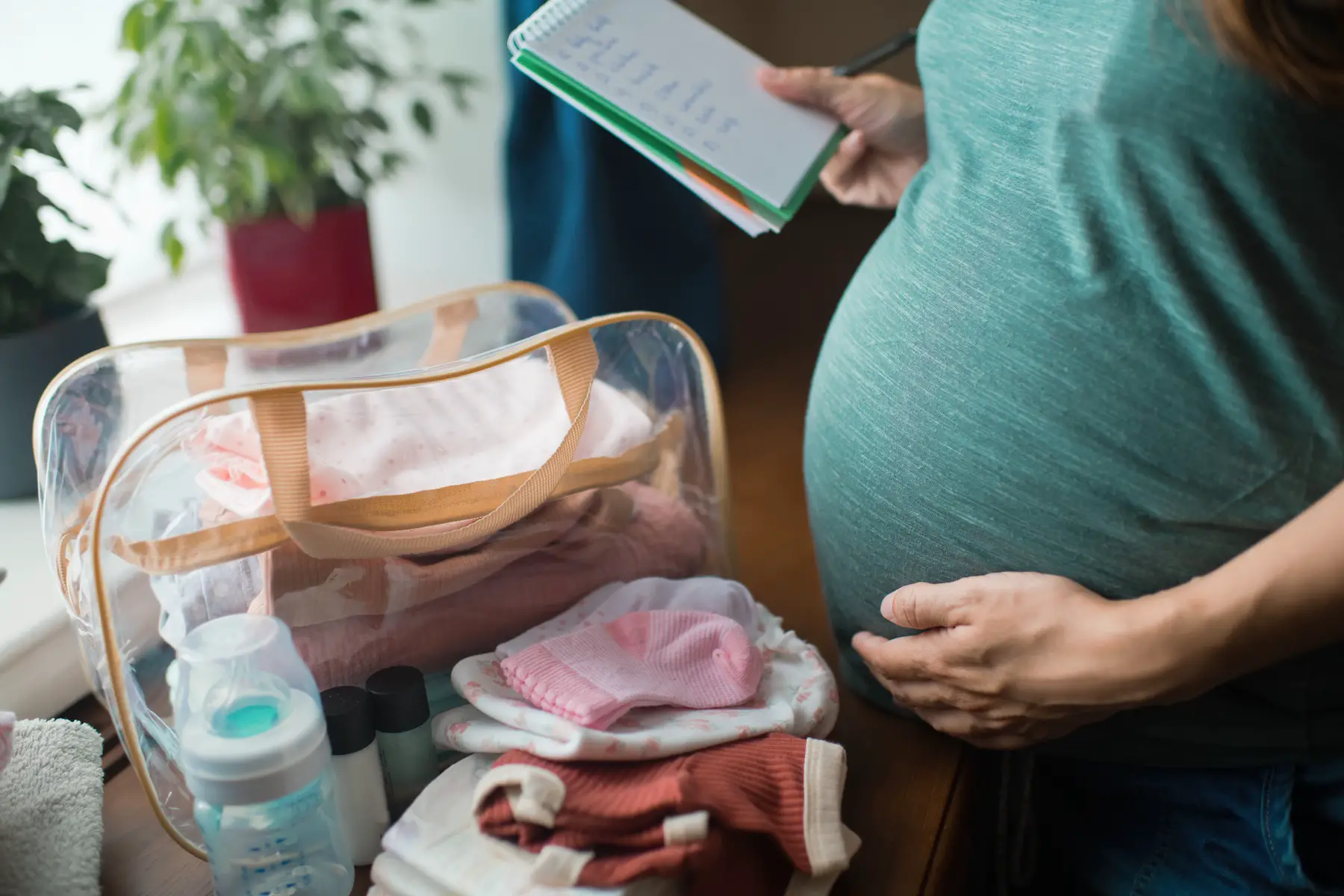
When you arrive at the hospital, there are some documents you will need to have with you:
- Maternity patient file
- Blood group card
- Passport, permanent residence permit, or temporary residence permit
- Family book or marriage certificate
- Confirmation of coverage from the health insurance company
When you go into labor, you should call the doula, midwife, or doctor who will be delivering your baby. They will ask you questions and recommend when you should leave for the hospital.
Swiss postnatal care
Following birth in Switzerland, the baby receives a comprehensive review including weight, measurements, and possible health defects. The healthiness of the baby is assessed against the Apgar scale, which checks heart rate, breathing, muscle tone, and responsiveness to stimulation.
Babies need to have their own insurance coverage in Switzerland which must be arranged within three months of birth. Any costs within the first three months will be retroactively covered by the new insurance policy. Postnatal care covered by insurance includes breastfeeding advice sessions, conducted by a midwife or a specially trained nursing professional, and one checkup between the sixth and eighth week after the birth.
Vaccinations
Although children are not required by law to be vaccinated – except in the case of an pandemic – vaccination rates remain high in Switzerland. Unvaccinated children are allowed into primary schools by law. Most daycares and schools will ask for certificates of vaccinations against measles and other illnesses, reserving the right to refuse admission.
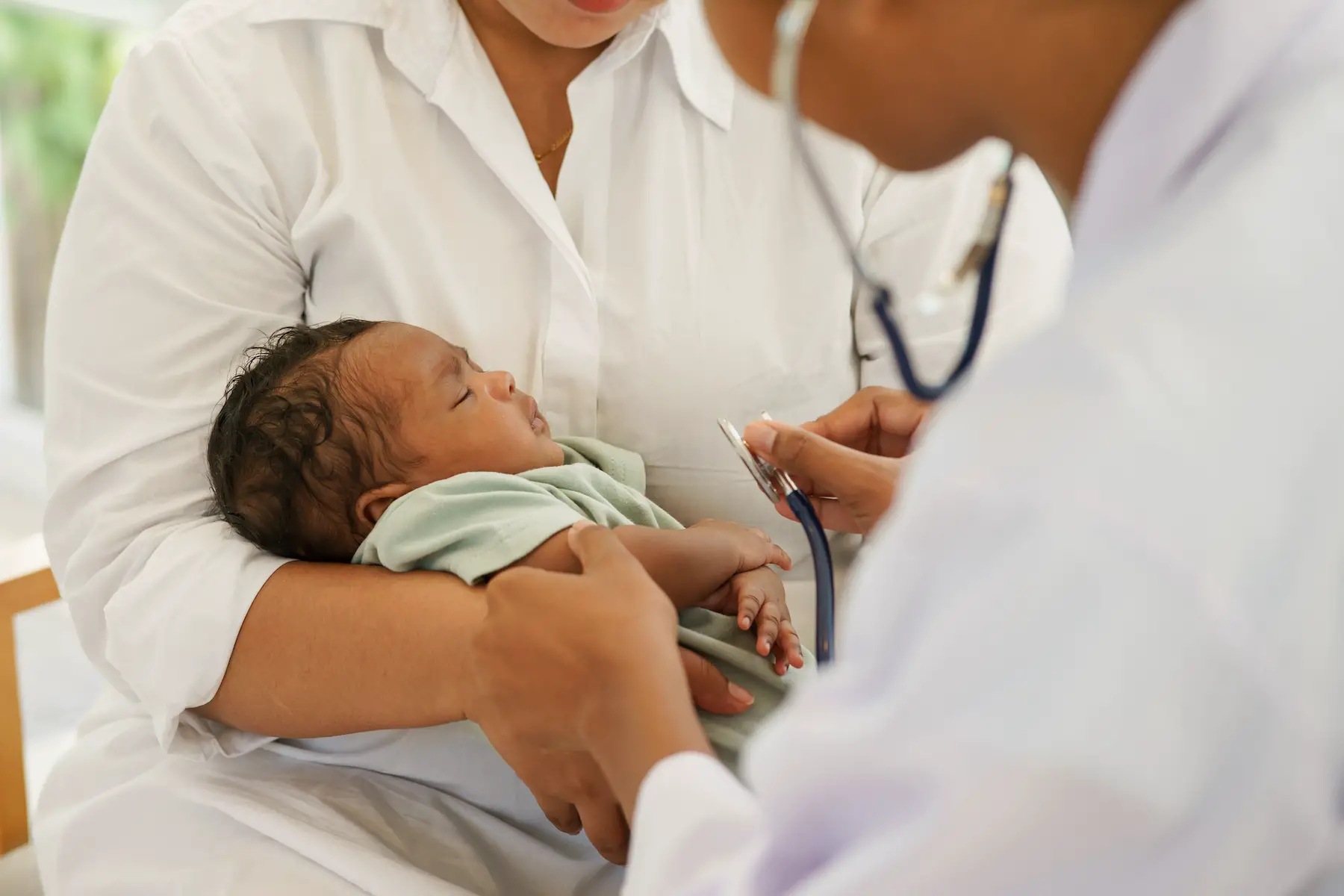
New parents are offered vaccines for their children in five rounds up to the age of two years, covering polio, MMR (measles, mumps, and rubella), Haemophilus influenza, pneumococcal bacteria, and meningococcal disease. Two more rounds are administered by pediatricians between four and seven years, and again from 11 to 15 years.
For more information on which vaccinations are required for which age groups in Switzerland, see the World Health Organization’s vaccine schedule.
Postnatal classes
After the baby is born, postnatal classes can help both the mind and body recover from the birthing process. Most involve some yoga, pilates, or floor exercises, and some even allow you to bring the baby to the class. Depending on the type of insurance policy you have, some classes may be covered.
Here are some examples of studios that offer postnatal classes in Switzerland:
- Zurich: Birthlight Yoga, Family Yoga, QiYoga
- Geneva: L’Essence Ayurvedic Center
- Basel: Basler Hebamme
- Lausanne: 100% Yoga
- St. Moritz: NANEA
- Zermatt: Post-natal Zermatt
Nurseries and childcare
Childcare options in Switzerland are extensive and cover children from birth until they start school. Daycare facilities for newborns to age four are called crèches and can be licensed either publicly or privately. According to the Swiss government, places are very limited and you may find long waiting lists, so it’s best to start looking well in advance.
Alternatively, you could look for a daycare family (crèches familiales), nanny, or au pair. A daycare family, or daycare mom (mamans du jour), provides childcare in their own home and usually only while the parents are at work each day. Nannies work in the family home, and their responsibilities often go beyond childcare to housekeeping, cooking, or even early childhood education. Au pairs are typically young people from abroad who are full-time employed caring for one family and live in their home.
Breastfeeding
Once returning to work, new mothers are entitled to special arrangements to breastfeed and express milk during the workday. Specifically, they are granted the following breaks for breastfeeding or pumping:
- 30 minutes for four hours of work
- 60 minutes for between four and seven hours of work
- 90 minutes for a workday of more than seven hours
New mothers are forbidden to work longer than nine-hour days.
Registering your baby in Switzerland
Parents must register a Swiss-born child within three days of birth, which is usually done automatically by the hospital. However, if the birth was in another canton or a home birth, registration is possible by the mother, father, or a third party present during the birth, such as a midwife (provided they have a letter addressed to the civil registrar confirming their identity).
If the father is not married to the child’s mother, he can only register the birth if he has officially recognized the child before the birth or does so at the time of registration. To register your baby, you must bring the following documents to the civil registrar’s office (Zivilstandsamt/bureau d’enregistrement):
- Proof of registered address for the parents
- Parent’s identity document
- Child’s birth certificate (from the hospital or doctor)
Non-residents and tourists having a baby in Switzerland
If you plan to give birth in Switzerland, you’ll need a short-stay visa and travel health insurance. While EU citizens are covered by reciprocal rules and their European Health Insurance Card is usually enough, non-resident tourists and visitors must have insurance – or pay privately for maternity costs.
Typically, travel insurance covers you for complications associated with pregnancy and childbirth, not for routine treatments or a normal birth – but it’s best to check with your insurer before leaving, or to take out a private insurance policy that specifically covers delivery.
Companies that provide international health insurance to cover you and your baby include:
Will your child get Swiss citizenship?
Unlike many countries, a baby born to foreign parents in Switzerland does not acquire citizenship automatically. However, they may be able to become a Swiss citizen if they meet certain conditions. For more information, see Expatica’s article on getting citizenship in Switzerland.
Swiss maternity and paternity leave
Maternity leave in Switzerland pays 80% of the mother’s normal wages (up to CHF 196 per day) for 14 weeks (or 98 days) beginning when the child is born. Both full-time and part-time employees are entitled to maternity leave, and it is forbidden to return to work before eight weeks after the birth. There are special circumstances that can grant additional leave or higher pay during the maternity break.
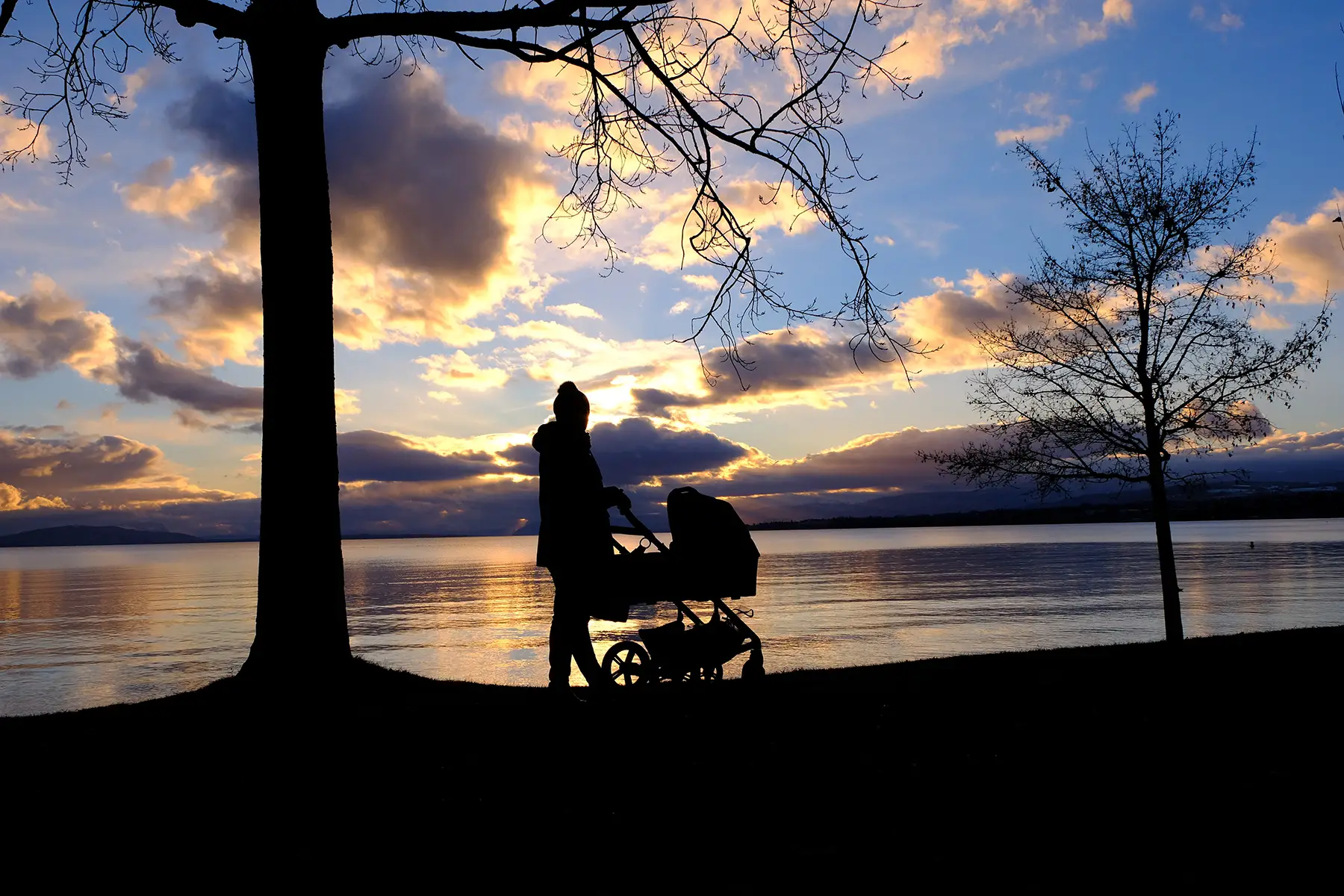
Since 1 January 2021, new fathers can take two weeks of paid paternity leave (14 days’ daily allowance). Paternity allowance amounts to 80% of earnings up to a maximum of CHF 195 per day.
Keep in mind that these are just the base requirements for paternity and maternity leave in Switzerland. Cantonal provisions, personnel regulations, and collective employment contracts may provide more generous leave packages for both mothers and fathers.
Swiss child benefits
Switzerland gives parents a monthly child allowance of CHF 200 for each child under 17 (or 21 for children with a disability or chronic illness). Parents of young people aged 17–25 who are in school or vocational training get CHF 250 per month.
Child benefits are not automatic, which means you have to apply to receive them. If you are delayed in applying, you can request retroactive child allowance payments for up to five years. Allowances vary by canton, but only one amount is paid out per child, even if there are two parents.
Helpful pregnancy-related terms
With four official languages, communicating about your pregnancy in Switzerland might get a little tricky. Here are some common terms in German, French, Italian, and Romansh to get you started:
| English | Swiss German | French | Italian | Romansh |
| Baby | das Baby/der Säugling | le bébé | il bambino | il pop |
| Breastfeed | stillen | allaiter | allattare al seno | |
| Epidural | die Epiduralanästhesie | péridurale | l’epidurale | |
| Maternity leave | der Mutterschaftsurlaub | congé maternité | congedo di maternità | |
| Midwife | die Hebamme | la sage-femme | la osterica/la levatrice | spendrera/dunna da part |
| Pregnancy | die Schwangerschaft | la grossesse | la gravidanza | gravidanza |
| To give birth | gebären | mise au monde | partorire | naschientscha |
| Vaccine | der Impfstoff | le vaccin | il vaccino |
Useful resources
- ch.ch – easy answers about life in Switzerland from the Swiss government
- Federal Office of Public Health – Swiss government agency dedicated to public health
- Swiss Association of Midwives – founded in 1894, it has almost 3,200 members and parents can search for a midwife nearby
- Professional Association of Breastfeeding and Lactation Consultants – official membership organization where parents can search for breastfeeding consultants in their area
